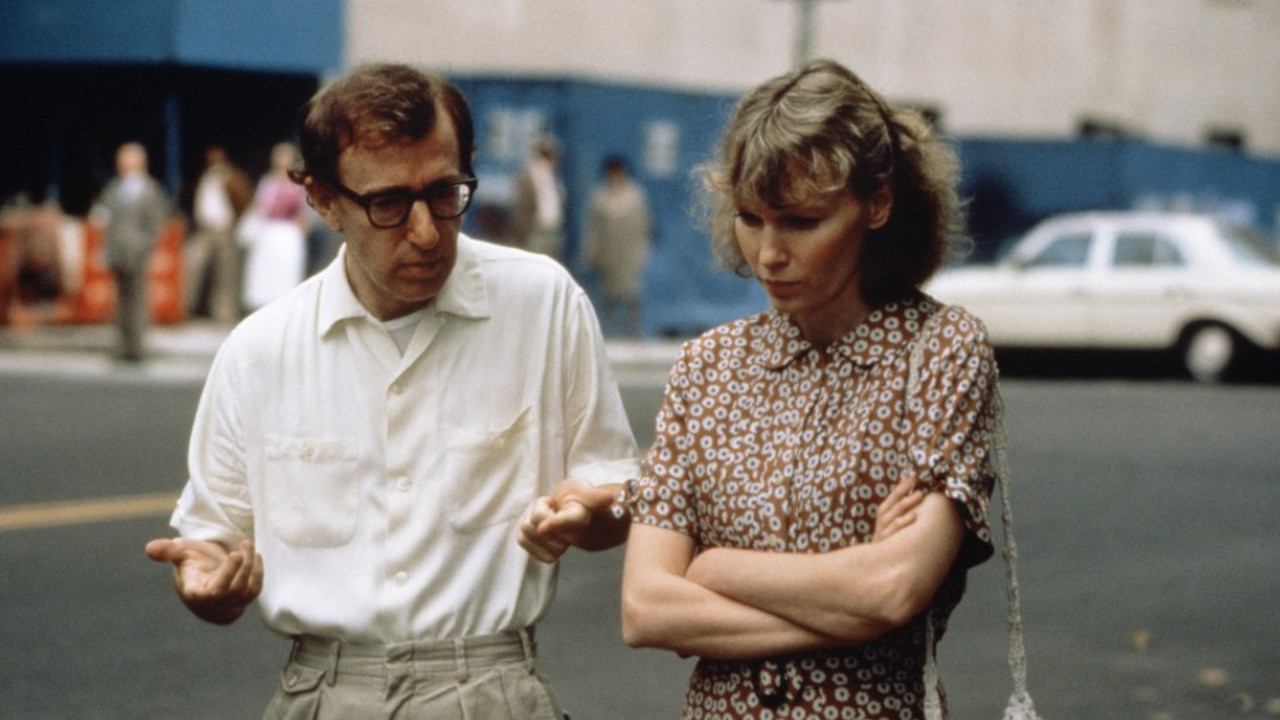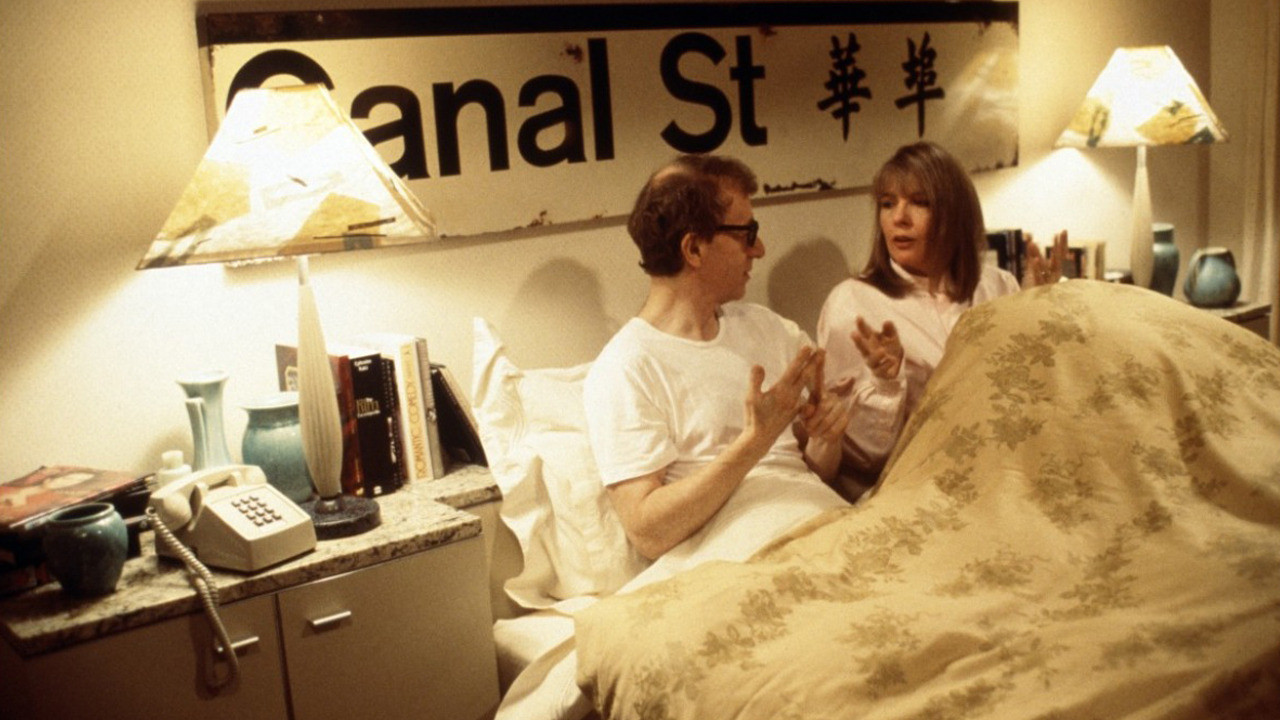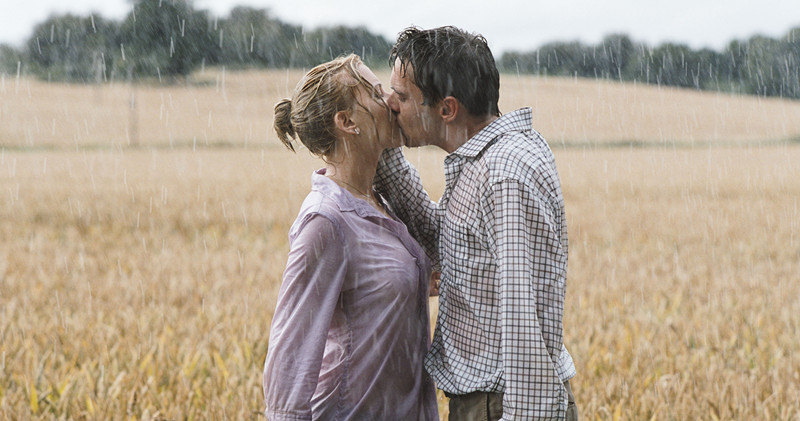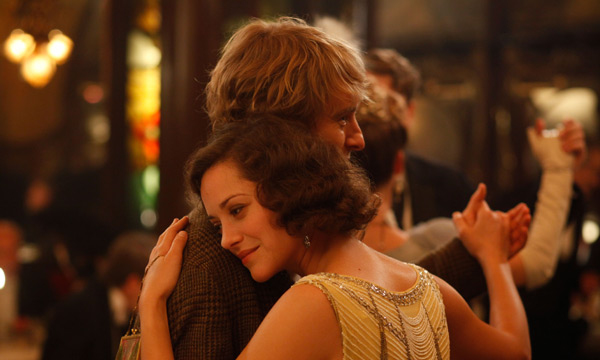6. Sometimes love can end up well: Hannah and Her Sisters (1986)

Allen is best known for his downer or bittersweet endings — think Annie Hall, Crimes and Misdemeanours or Purple Rose Of Cairo — yet he is not nihilistic enough to assume that all romances end up terribly.
Hannah and Her Sisters, with its ensemble cast and complex, multilayered plot that takes us over the course of three thanksgivings, shows contrasting relationships in all their terrible complications, thus making its final line — “I’m pregnant” — all that more hard won.
It isn’t enough to say that things will be fine for the two in the end, but the joint struggles that both the brooding Mickey (Woody Allen) and the manic Holly (Dianne Wiest) go through suggest that they are smart enough not to fall into the same traps as in their previous relationships.
Here Allen borrows from the cutting back-and-forth narrative of Anna Karenina, in which a multitude of characters were effortlessly juggled by Tolstoy, in order to add thematic depth to the movie.
Thus the story of Elliot (Michael Caine) and Lee (Barbara Hershey) of a romance that is full of remarkable passion but that doesn’t quite work is used as a contrast to see why some affairs succeed and why some don’t.
What makes Allen so smart in this movie is the way he puts character first and plot second, thus avoiding any cut-and-dry explanations in favour of creating a mood which moves like life itself. Therefore, it seems that love can work out, but the reasons why are beyond anyones understanding.
7. Sometimes you can be happily married: Manhattan Murder Mystery (1993)

A reunion between Allen and Keaton after fourteen years, Manhattan Murder Mystery works as a “what if” type of film: what if Alvy Singer and Annie Hall were happily married? Unsurprisingly much of the script came from disused drafts of Annie Hall.
Heavily modelled after The Thin Man films of the 30s, starring the perpetually drunk and perpetually in love couple, played by William Powell and Mryna Loy, Manhattan Murder Mystery sees the two going through the motions until a close neighbour of theirs dies of an apparent heart attack. Carol (Keaton) is not impressed, and decides to investigate. The result is an amateur sleuth story that only really serves as an excuse to see these two stellar actors riff off one another again.
A happy marriage does not necessarily mean a blissful one. There will be conflicts; for example, Larry (Allen) doesn’t want his wife to investigate, believing that walls exist for a reason. Along with the convoluted plot, his paranoia versus her headstrong nature provide the plot with its major source of conflict.
Nevertheless, you can see in the way they look and talk to each other that they are a couple that understand and love one another: despite having been married for so long and a woman mysteriously dying in the room next to them.
8. Sometimes love can be confused for lust: Match Point (2005)

One of three films made in London — the other two being the excellent Scoop and the misfire Cassandra’s Dream — Match Point was often pointed to as Woody Allen’s renaissance after the early 00s proved to be his most fallow period.
The reason why: a complete change of tone for the director. He had made depressing ‘no-joke’ movies before, such as Interiors and September, but those were still steeped in the East Coast American middle class. Match Point, on the other hand, uses London — which Allen doesn’t know very well — as a new geographic plane upon which to pin an excellent genre film.
It concerns a schemer called Chris Walton (Jonathan Rhys Meyers), who uses his cachet as a tennis instructor to ingratiate himself with the upper class and increase his personal standing. Along the way he amasses both a wife (Emily Mortimer) and a lover (Scarlett Johansson).
Yet, as is wont to happen in these situations, the latter gets close to threatening the stability of being with the former. Unusually for a Woody Allen film, and a deliberate stylistic choice, the sex scenes — which hitherto were usually academic or funny — are highly erotic.
Here he stresses the sense of lust in order to tell the audience not to confuse it for anything more meaningful. Things get more complicated; and soon Chris is faced with a decision, either come clean or make the problem go away. Naturally, he murders his lover. The film proves that in the throes of lust, one can think that they are in love, but really they are mistaking it for something much more carnal indeed.
9. Sometimes romance comes easier on holiday: Vicky Cristina Barcelona (2008)

Made at the height of Allen’s European adventure, Vicky Cristina Barcelona is as sunny as a postcard, yet as deep as a novel; using the appearance of the former in order to sneak the latter up on you. It concerns two friends, Vicky (Rebecca Hall) and Cristina (Scarlett Johansson), who take a trip to Catalonia, only to find themselves easily susceptible to the wiles of a mysterious hispanic man (Javier Bardem).
What follows is a delightful tale of lover-swapping that is made all that more pleasant by its picturesque location. All things considered, they probably wouldn’t have appreciated a random man’s advances at a restaurant in New York; but here in Spain, it simply appears to be part of the culture.
Being abroad makes you want to appreciate new things; good wine, getting into photography, and in Cristina’s case, even casual bisexuality. Even Vicky, who at first is not so easily impressed by Gaudi’s architecture and the perfect weather, finally finds herself warming to Juan upon hearing some local guitar music on a terrace.
As unfamiliar settings are the best way to create new sensations and feelings about life and love, this moment proves too poignant for Vicky and she gives into Juan’s seduction. Nevertheless, with the revelation that Juan’s ex-wife, played to perfection by Penélope Cruz, is actually crazier than she looks, the ideal holiday soon reveals itself to be a facade. The way that Allen deconstructs this makes it one of his better later day efforts.
10. Sometimes new love is the antidote to nostalgia: Midnight In Paris (2011)

Gil (Owen Wilson) is a novelist, and he is obsessed with the past. Currently living in the present, he looks back to the glory days of the 1920s as the perfect time to be alive in Paris. One day, when having yet another argument with his wife (Rachel McAdams) he skulks off to explore the streets, suddenly finding himself back in that era.
Whilst the film has a lot of fun with literary figures such as Hemingway and Fitzgerald coming to life, the real message of the film is that the idea of a perfect past is something that only exists in the imagination.
The real way of making something of your life is to find and carve out a “golden age” for yourself. Gil learns this the hard way. Yet a salvation comes for him in the presence of a local Parisian (Léa Seydoux) with whom he finally ends the film, walking in the rain, hopeful for the future.
There is nothing wrong with nostalgia in small doses, but living in the past — whether looking back to a previous relationship, or to some kind of golden era — can prove to be highly corrosive. What Midnight In Paris does, with its hopeful ending, is show that meeting someone new might just be the perfect antidote.
Author Bio: Redmond Bacon is a professional film writer and amateur musician from London. Currently based in Berlin (Brexit), most of his waking hours are spent around either watching, discussing, or thinking about movies. Sometimes he reads a book.